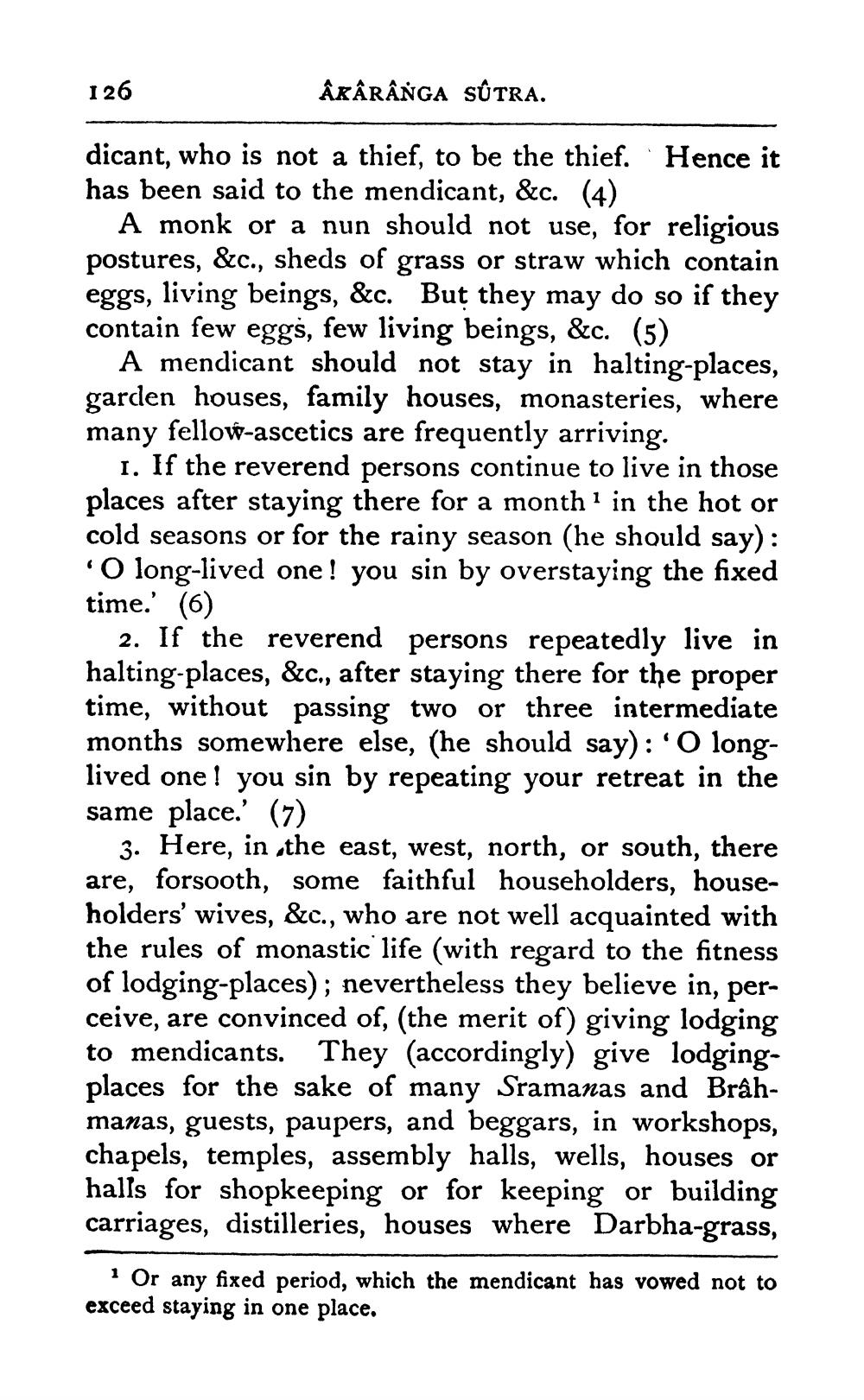________________
126
ÂRÂRÂNGA SÛTRA.
dicant, who is not a thief, to be the thief. Hence it has been said to the mendicant, &c. (4)
A monk or a nun should not use, for religious postures, &c., sheds of grass or straw which contain eggs, living beings, &c. But they may do so if they contain few eggs, few living beings, &c. (5)
A mendicant should not stay in halting-places, garden houses, family houses, monasteries, where many fellow-ascetics are frequently arriving.
1. If the reverend persons continue to live in those places after staying there for a month in the hot or cold seasons or for the rainy season (he should say):
O long-lived one! you sin by overstaying the fixed time.' (6)
2. If the reverend persons repeatedly live in halting-places, &c., after staying there for the proper time, without passing two or three intermediate months somewhere else, (he should say): 'O longlived one! you sin by repeating your retreat in the same place. (7)
3. Here, in the east, west, north, or south, there are, forsooth, some faithful householders, householders' wives, &c., who are not well acquainted with the rules of monastic life (with regard to the fitness of lodging-places); nevertheless they believe in, perceive, are convinced of, (the merit of) giving lodging to mendicants. They (accordingly) give lodgingplaces for the sake of many Sramanas and Brâhmanas, guests, paupers, and beggars, in workshops, chapels, temples, assembly halls, wells, houses or halls for shopkeeping or for keeping or building carriages, distilleries, houses where Darbha-grass,
? Or any fixed period, which the mendicant has vowed not to exceed staying in one place.




